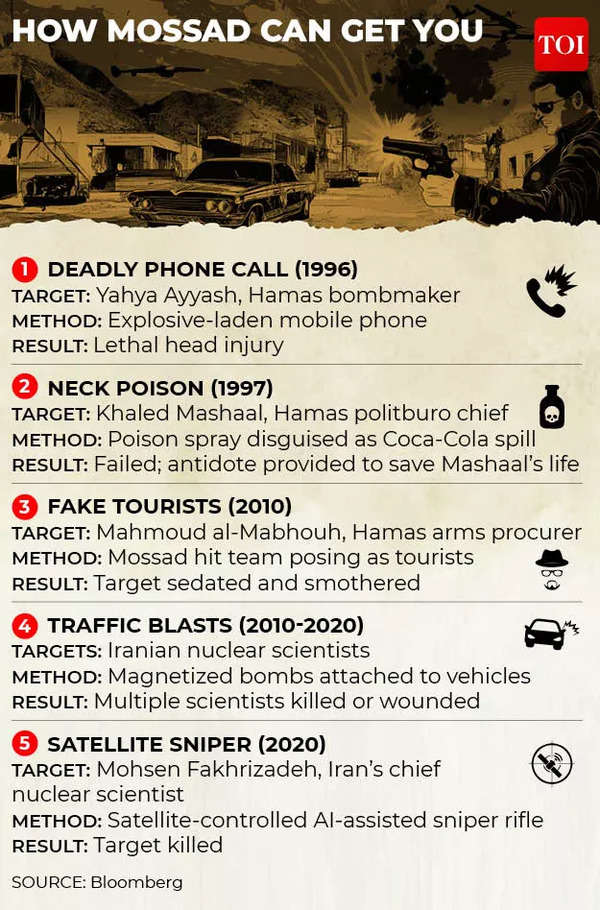Hezbollah has been left in shock by the twin attacks, as this is now understood to be the most complex operation carried out by Israel’s intelligence agency. Mossad,
Hezbollah blames Israel for pager blasts, death toll rises to 9, over 2,700 injured
The structure of attacks: from pagers to walkie-talkies
The operation began with the sound of beeping buzzing across Lebanon, the New York Times reports. The pager, which Hezbollah leader Hassan Nasrallah had long considered a safer alternative to cellphones, suddenly became an instrument of destruction.
The precision and scale of the operation was staggering. At 3:25 p.m. on Tuesday, two Hezbollah members were eating lunch in a shopping mall when their pager exploded. A few minutes later, another blast occurred at a Hezbollah office. Within minutes, hundreds of pagers exploded almost simultaneously in parts of Lebanon and Syria.
Witnesses described scenes of chaos: people were tossed from motorcycles, shoppers collapsed in agony, smoke billowing from pockets.
“My son went crazy and started screaming when he saw the man’s hand move away from him,” said Mohammed Awada, 52, who witnessed one of the blasts, the NYT reports. These attacks were not limited to public places; they also penetrated Hezbollah’s infrastructure, with explosions occurring in offices and even at funerals of victims of the previous day’s attacks.
The Trojan Horse of the Modern Age
At the heart of this operation is a tale of deception worthy of a John le Carre novel. US intelligence sources told the NYT that Israel had set up a shell company, BAC Consulting, apparently a Hungary-based firm, which was contracted by the Taiwanese company Gold Apollo to make the pagers. In reality, it was an elaborate Israeli intelligence operation.
The pagers destined for Hezbollah included a dangerous item: batteries equipped with explosive PETN. What Hezbollah thought was a defensive measure against Israeli surveillance turned out to be their weakness. The level of infiltration was so deep that even the company’s website and LinkedIn profiles were carefully crafted to avoid suspicion, the NYT report said.
Mossad links to Hezbollah pager bombs; 3 grams of explosives, remote triggered | Report
The deception extended beyond the pagers. The next day, walkie-talkies and other electronic equipment used by Hezbollah began exploding, indicating a multi-layered approach to the operation.
Although, as is tradition, Israeli officials neither confirm nor deny their involvement, it is almost certain that the Mossad had a hand in it. Defense Minister Yoav Galant declared the start of a “new phase” of the war on Wednesday night as Israel turned its attention to Hezbollah. “The center of gravity is shifting northward by diverting resources and forces,” he said. In a clear warning to Hezbollah, an Israeli general said: “We have many capabilities that we have not yet activated.”
Strategic calculation
This is not the first time the Mossad has carried out such a covert attack. The agency has built a reputation for surgical precision in its assassinations and sabotage missions, targeting people ranging from Iranian nuclear scientists to high-ranking Hezbollah leaders.
The question still remains: why now?
“One reason behind the pager attack, like the killing of Hamas political leader Ismail Haniyeh in Tehran in late July, is that the Mossad is determined to rehabilitate its brand,” says a report in Foreign Policy. These continued attacks on Hezbollah will go a long way in restoring the Mossad’s “omnipotent and omnipresent” image.
Another reason could be that Israel is now prepared for war with Hezbollah. In the weeks following October 7, 2023, Hezbollah’s rocket fire into Israel had increased, demanding a more robust Israeli retaliation. The northern border had become a hotbed of tension. Therefore, the explosion of these communications equipment was planned not only to weaken Hezbollah’s infrastructure but also to send a frightening message to Nasrallah and his militia: Israel could attack at any time and in any form.
Israel Hezbollah war live updates: Series of explosions in Lebanon
A retired Israeli military officer said, “Why didn’t we do this 11 months ago? Because we weren’t ready for war yet. What’s happening now? Israel is ready for war.”
The detonation of these devices likely delayed Hezbollah’s operational capabilities, requiring the group to spend several months recovering its positions, repairing its communications network, and searching for informants.
For the moment, the pager explosions serve as a tactical victory, even if not a prelude to something bigger. Still, Israel’s challenge remains unresolved: how to contain the multi-front threats posed by Hezbollah, Hamas and Iran, while avoiding a wider regional war. For Hezbollah, the attacks underscore a deeper weakness – its reliance on imported technology from questionable sources – and the fact that even a decades-old guerrilla organization is not immune to Israeli ingenuity.

Implications beyond Lebanon
The atmosphere immediately following the attacks is one of fear. The explosions exposed thousands of Hezbollah operatives, revealing their secret ties to their family members and neighbors. A lack of trust within both Hezbollah and its civilian base could fuel tensions in Lebanon. The region’s reliance on imported electronics also stirs up tensions among other Iranian-affiliated militias. What if even more devices—phones, tablets, radios—become similarly endangered?
As Lebanon grapples with this latest tragedy, the region stands on the brink of a wider conflict. The pager attacks could be the prelude to a broader campaign against Hezbollah or just another move in the ongoing chess game of Middle Eastern geopolitics. Israel’s Prime Minister benjamin netanyahuThe US government’s recent statement about safely returning residents of the northern region to their homes suggests that further action may be imminent.
What is clear is that in the shadowy world of international espionage, the lines between peace and war, between civilian technology and deadly weapons, are becoming blurred. A Lebanese woman called out to her children, waving her hand in warning: “Turn off your phones now!” In this new reality, even the most harmless device can become an instrument of war.
(with inputs from agencies)

















